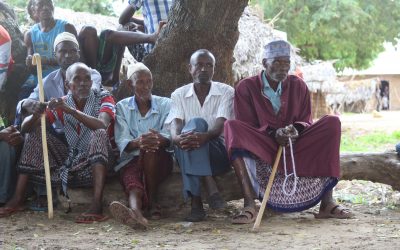According to previous reports, land conflicts in Lamu stem way back to the 1900s when land was listed as government land (now public land). The county population stands at 112,252 persons composed of 58,641 males and 53,611 females as projected in 2012. This includes a cosmopolitan population of indigenous communities made of Swahilis, Arabs, Koreni, Boni, Ormas and migrant communities from the rest of the country.
With the LAPSSET project passing through the county, a huge migrant population of people from other counties is expected. This has everything to do with the current scramble for land and the increased landlessness in the region. This explains why all the communities in Lamu suffer titles for their lands. They know their lands literally by vision and land marks, but lack the essential documents to proof for ownership. Land laws passed so far have not been of much help to residents here, making it difficult for them to acquire the necessary land documents. This has created loopholes for land grabbers to displace vulnerable members of the community who now only own land through inheritance from their ancestors.
Residents in Bargoni sub-location are opposed to the project (LAPSSET) saying it would sweep away their ancestral land containing graveyards, farming land and the trees they use for bee keeping. Residents of Bobo village feel inferior and think that government projects cannot be stopped. For residents in Panda Nguo village in Boni forest, they were not even aware that the project would pass through their lands; they say no one has held any meetings to train or educate them on LAPSSET.
The locals have been pushing for the county government to fast-track the process of land planning, surveying and demarcation in order to obtain land ownership documents, but the process has not yet come to fruition. The residents feel marginalized and question whether they would ever get a hold of title deeds.
Choosing to sideline the corridor project and its impact on land to the residents here, there is yet another monster in the room; the proposed coal power plant in Lamu. Residents have been raising grievances on the effects the corridor project would bring and have now moved a step further to hold street demonstrations to bring their concerns towards coal to
public.
They are against the coal power plant because of various reasons including health problems and the fact that it would affect their livelihoods. In addition, the pollution from coal would destroy the environment and severely damage marine resources and the UNESCO World Heritage Site, let alone the expenses the coal energy plant would require to use.
Looking at all these land issues Lamu is suffering, they really need a way out. Their constitutional rights of public participation, access to information and involvement in government projects have all been violated. It is humiliating to hear so many issues of land in one setting, and the worse comes to worst being that the elected leaders are in their positions but have done
nothing so far to bring any of the land issues to rest.
The song is still the same. It is now over a century but land issues still same old. Their pleas have not been heard, if anything, more land is being lost to the new migrants from other areas of the country, and a few wealthy individuals who are in a position to acquire land documents through rogue means. The communities should continue to speak in one voice until they are heard.

